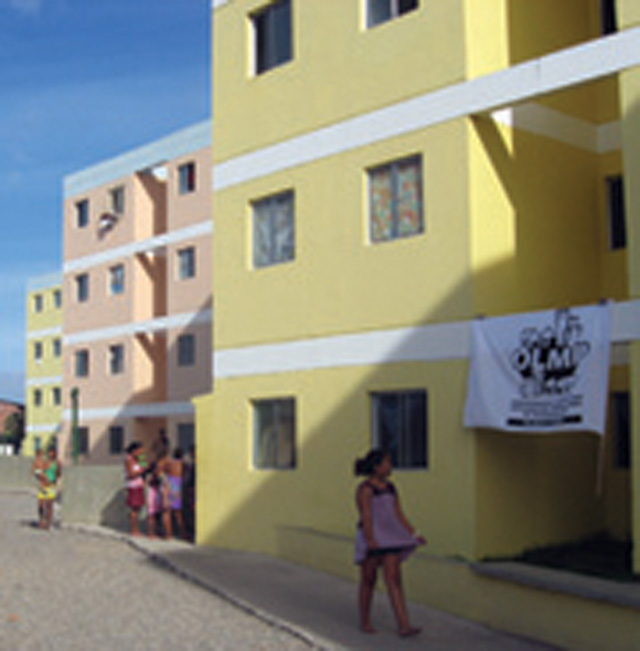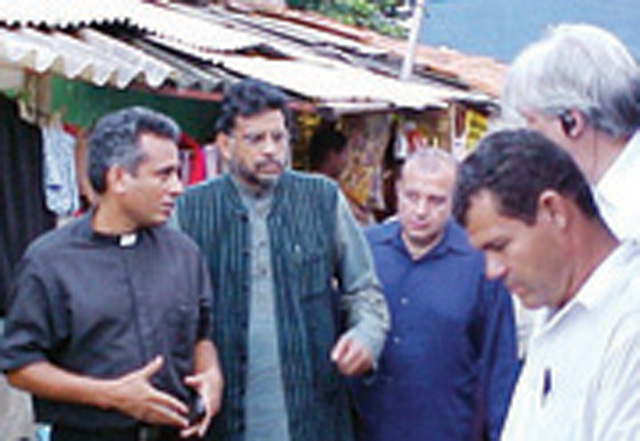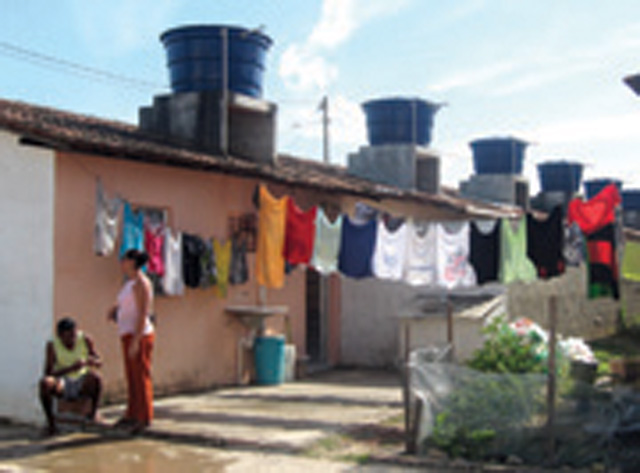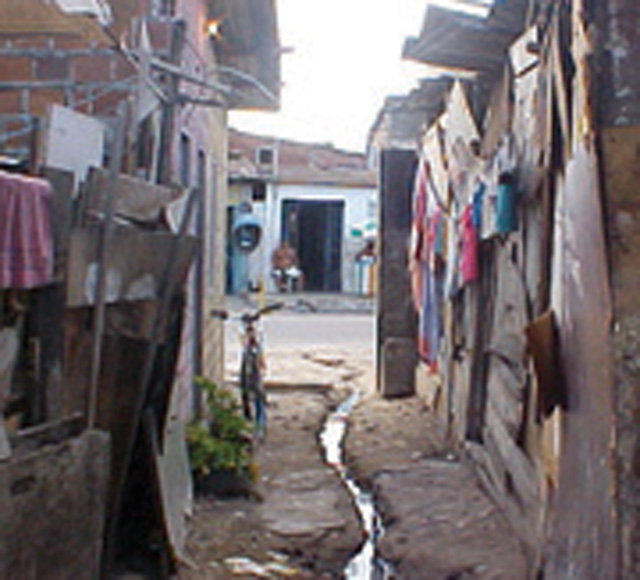The missing favela
By Danny Gillis
January/February 2011
Return to Table of Contents
Print Article
 FASE was instrumental in bringing Mr. Kothari to Recife in 2004 and helped to develop the two housing projects. This complex is named after Dom Helder Câmara, former Archbishop of Recife and champion of the poor.
FASE was instrumental in bringing Mr. Kothari to Recife in 2004 and helped to develop the two housing projects. This complex is named after Dom Helder Câmara, former Archbishop of Recife and champion of the poor.
One morning during our early days in Recife we drove downtown to meet the Development and Peace partner FASE (FAHzay). En route, Leo, our guide, intended to show us a notorious slum area that had existed for 20 years less than a mile from our hotel. When we got to the area, Leo was shocked to see that the shantytown had disappeared. All we could see was a park. “The favela,” he said, still looking around, “it was here, right here, just two months ago.”
Coincidentally, on this day, we would visit an organization that planned to tell us what happened to the missing favela.
Favelas are squalid urban slums where 6.5 million Brazilians live a daily existence fraught with poverty and danger. It is an existence that offers few glimpses of opportunity. However, six years before, such an opportunity presented itself. United Nations official Miloon Kothari, Special Rapporteur on Housing, came to Recife to observe and investigate the conditions of the city’s favelas. His visit to the favela that Leo remembered—a warren of narrow laneways, rambleshack housing and open sewers—so embarrassed city and state government that promises were made for the resettlement of the favela’s inhabitants.
Evanildo da Silva, national director of FASE, told us, “The government has money. The issue is how do we make them spend this money on what is important for the poor.”
“The government has money. The issue is how do we make them spend this money on what is important for the poor.”
Evanildo da Silva, national director of FASE, a Development and Peace partner in Brazil
FASE, created 50 years ago with the help of the Brazilian bishops, is the country’s largest and most important nongovernmental organization. In Pernambuco, FASE’s work revolves around the critical issue of housing. Working with the people, they develop housing policies that are promoted to all levels of government. They support the formation of local leaders and groups that can take part in the progressive “participatory budgeting” process. Participatory budgeting has been in place in Recife since 1993 and has expanded the meaning and practice of citizenship. It allows members of civil society organizations and ordinary citizens to participate in determining how a portion of the municipal budget will be spent.
In the case of the favela in the park, FASE was instrumental in bringing the UN official to visit and in supporting the development of a grassroots group, the OLMP, that organized the community. After the visit of Mr. Kothari, people of the favela continued to pressure the government to live up to its promises. Finally in 2010, just two months before our visit, the 144 families of the favela were moved to brand new, clean low-rise apartment buildings and the favela was torn down.
Our group had the privilege of visiting the new housing complex and meeting many of the inhabitants. With great pride, the community showed us their homes. Now they have access to running water, sanitation and electricity. Although they were still pressing the government to fulfill certain promises, the people were happy and hopeful. One resident, Claudette, told us: “Now I can say I live on this street. I am a citizen.”
 The visit of a UN official, Mr. Kothari , Special Rapporteur on Housing, led to the resettlement of favela inhabitants in the city of Recife.
The visit of a UN official, Mr. Kothari , Special Rapporteur on Housing, led to the resettlement of favela inhabitants in the city of Recife.
Return to Table of Contents
Print Article

